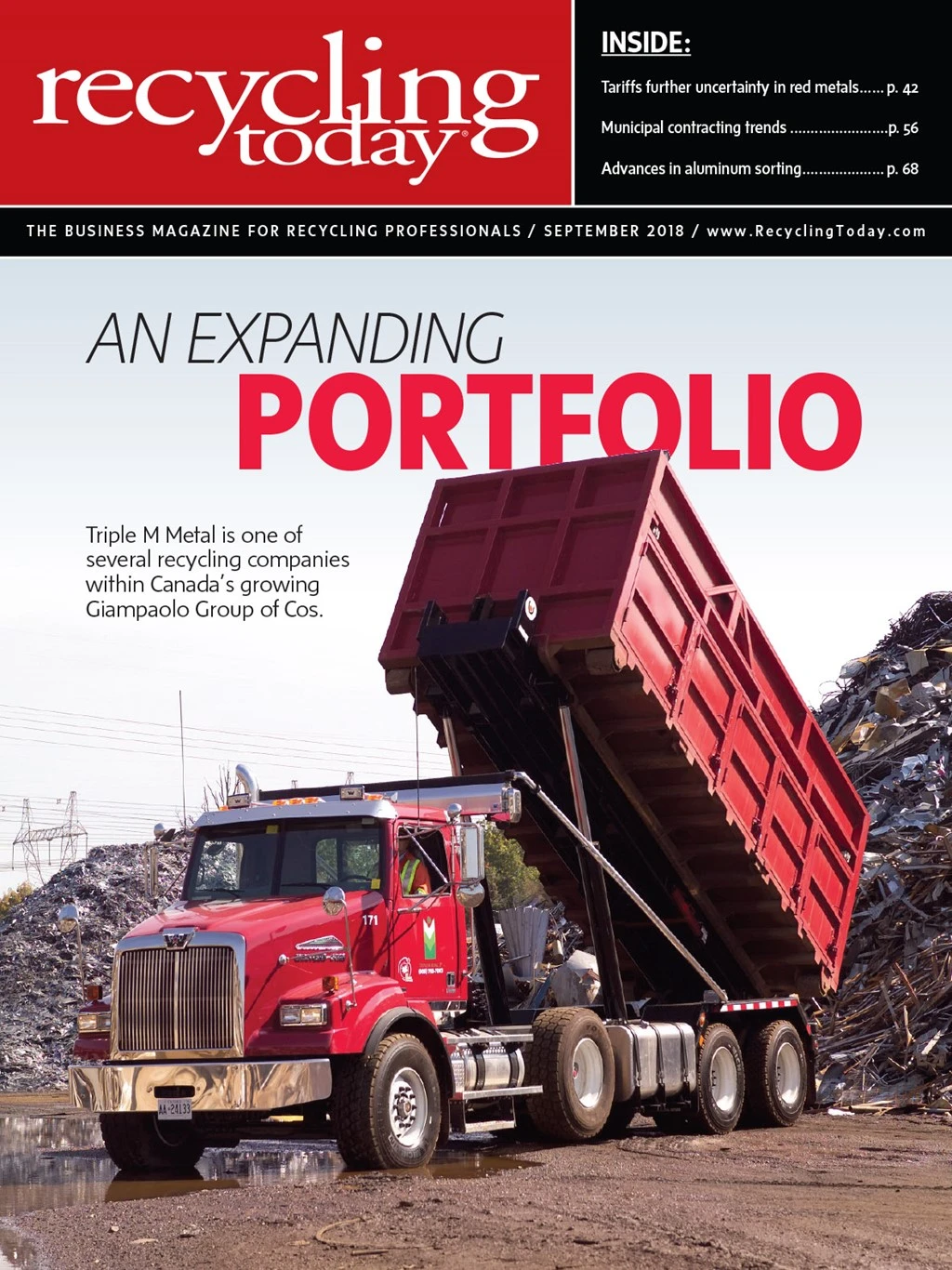The beauty of sustainability

Loop Industries Inc., Terrebonne, Quebec, says it has signed a Letter of Intent with L’Oréal Group, based in France, that sets the stage for the cosmetics company to close the loop on its polyethylene terephthalate (PET) packaging by incorporating Loop PET.
Loop’s technology deconstructs PET from water and soda bottles and other forms of packaging into its base monomers, separating impurities and then reconstructing the monomers into Loop PET, the company says.
Philippe Thuvien, global head of packaging and development for L’Oréal Group, says, “As the leader in the beauty industry, we believe we have a responsibility to bring innovative and sustainable solutions to the consumer. That is why we seek to partner with innovative companies and leverage technologies, such as Loop, that will trigger an acceleration in the transition to a circular economy. And Loop PET is able to meet the rigorous packaging standards of L’Oréal.”
A vote to save our seas

June 25, the U.S. House of Representatives passed S. 756, the Save Our Seas Act of 2018. It amends the Marine Debris Act, revising the Marine Debris Program to require the National Oceanic and Atmospheric Administration (NOAA) to work with other agencies to address land- and sea-based sources of marine debris. The Department of State and other agencies would be required to promote international action to reduce the incidence of marine debris. The bill also would allow NOAA to make money available for assisting in cleanup of and response to severe marine debris events.
The American Chemistry Council (ACC), Washington, says the “important bipartisan legislation … focuses and directs the U.S. government’s help in addressing international marine debris and land-based waste management solutions in the places that need it the most.”
The amended legislation must be approved by the Senate before going to the president.
By the billion

Germany-based sportswear company Adidas reportedly will adjust its manufacturing operations between now and 2024 to exclusively use recycled-content plastic.
News outlets, including CNN, cite an article in the Financial Times stating Adidas has pledged to eliminate using virgin plastics in the clothing it makes as well as in its offices, retail stores and distribution centers.
No such pledge has been posted to the company’s website as of late August; however, according to HuffPost, Adidas spokesperson Maria Culp issued a statement to the internet newspaper that reads: “We aim to use 100 percent recycled polyester in every product and on every application where a solution exists by 2024.”
Adidas has worked with the New York-based ocean preservation group Parley to use plastic reclaimed from the ocean to manufacture sportswear, including running shoes and jerseys for the Real Madrid soccer team. Additionally, the company says its UltraBOOST X shoe uses reclaimed plastic from the equivalent of 11 plastic bottles.
Do you have a unique recycling-focused story that you would like to share? Please send a press release to DeAnne Toto at dtoto@gie.net.

Explore the September 2018 Issue
Check out more from this issue and find your next story to read.
Latest from Recycling Today
- Radius loses money, says merger on track
- Electrostatic technology vies for role in ASR sorting
- ReMA board to consider changes to residential dual-, single-stream MRF specifications
- Trump’s ‘liberation day’ results in retaliatory tariffs
- Commentary: Waste, CPG industries must lean into data to make sustainable packaging a reality
- DPI acquires Concept Plastics Co.
- Stadler develops second Republic Services Polymer Center
- Japanese scrap can feed its EAF sector, study finds






